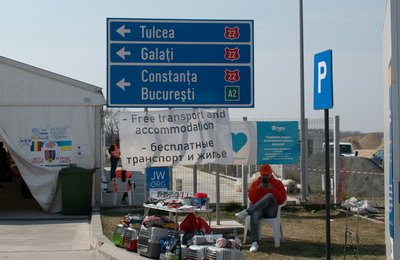 A Handicap International clinic in Haiti. Image credit: UN Photo
A Handicap International clinic in Haiti. Image credit: UN PhotoThe report, a snapshot of the devastating consequences of armed violence on people and their families, highlights a clear link between armed violence and disability. Survivors of armed violence with lasting impairment and medical conditions face many barriers in living their daily lives, especially those who live in marginalised, neglected and dangerous areas. Every day, they are confronted with the increasing difficulties created by their new conditions, including the negative impact on their psychological well-being. Limited assistance for long-term health and rehabilitation, a lack of economic support and social participation exacerbates their exclusion.
Over 80 per cent of survivors interviewed sustained lasting impairment, with loss of function in either upper or lower limbs, including spinal cord injuries. Their injuries resulted in reduced economic opportunities and subsequent economic and social exclusion, with survivors experiencing negative impacts on their household income and livelihood. The effects of this were multiplied if survivors had dependants in their household.
The research also found that armed violence frequently diminishes the subsistence and educational opportunities available to survivors and their dependants, leading to difficult changes in social dynamics within their families and communities.
Despite the completion of this research and its important contribution to knowledge of armed violence and disabilities, more needs to be done. There remains a lack of empirical evidence on the scope, characteristics and impact of armed violence on livelihoods and disability. This report represents only the tip of the iceberg, and building more evidence is essential in order to develop sound, reality-based policies.
(For additional information, comments and to receive a copy of the report, please contact: rashmi.thapa@handicap.be)






